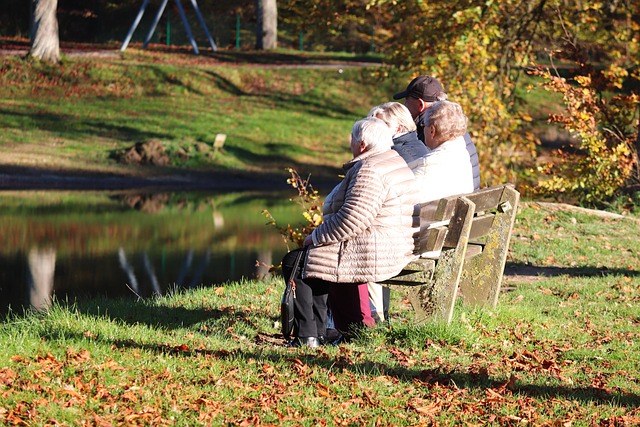Life’s journey brings a wealth of experiences, wisdom, and, yes, its own unique set of challenges. As we gracefully navigate our later years, the landscape of our lives shifts, and with it can come unexpected waves of stress and anxiety. Whether it’s adjusting to retirement, coping with health changes, navigating new family dynamics, or simply feeling the weight of the world, it’s crucial to remember that you’re not alone, and effective strategies exist to cultivate inner peace.
This isn’t just another fluffy article on taking deep breaths (though that can help!). We’re diving deep into the nuances of managing stress and anxiety in later life, offering insightful perspectives and actionable tips to help you reclaim your calm and thrive.
Understanding the Unique Landscape of Stress and Anxiety in Later Life
While stress and anxiety can affect anyone at any age, their manifestations and triggers can take on specific forms as we age. Consider these common factors:
- Retirement Transitions: What was once a long-awaited freedom can sometimes bring feelings of loss of purpose, social isolation, and financial worries.
- Health Concerns: Dealing with chronic conditions, mobility issues, or the health of loved ones can understandably fuel anxiety and stress.
- Changes in Social Connections: Loss of friends or partners, children moving away, or reduced opportunities for social interaction can lead to loneliness and increased anxiety.
- Financial Strain: Fixed incomes, rising healthcare costs, and concerns about leaving a legacy can create significant stress.
- Sensory Changes: Declining vision or hearing can lead to feelings of vulnerability and anxiety in social situations.
- Ageism and Loss of Independence: Feeling overlooked or struggling with tasks that were once easy can impact self-esteem and increase anxiety.
Recognizing these unique stressors is the first step towards effectively managing them. It’s about understanding the specific challenges you might be facing and tailoring your coping mechanisms accordingly.


Powerful Strategies for Reclaiming Your Calm
Now, let’s move beyond the surface-level advice and explore some impactful strategies for managing stress and anxiety in your later years:
1. Embrace the Power of Connection and Social Engagement:
- Nurture Existing Relationships: Make a conscious effort to stay connected with family and friends. Regular phone calls, visits, or even video chats can combat feelings of isolation.
- Seek Out New Connections: Explore opportunities to join clubs, senior centers, volunteer groups, or faith-based organizations. Shared interests and activities can foster new friendships and a sense of belonging.
Combat Loneliness: If you’re feeling isolated, don’t hesitate to reach out for support. Consider talking to a therapist, joining a support group, or exploring community resources.
2. Prioritize Gentle Movement and Physical Well-being:
- Find Joy in Movement: Engaging in activities you enjoy, whether it’s walking, swimming, gardening, or chair yoga, can significantly reduce stress hormones and boost your mood.
- Listen to Your Body: Adapt your exercise routine to your physical capabilities. Even gentle movement can make a difference.
- The Mind-Body Connection: Remember that physical health and mental well-being are intertwined. Taking care of your body is an act of self-care that directly benefits your mind.
3. Cultivate Mindfulness and Relaxation Techniques:
- Mindful Moments: Practice bringing your attention to the present moment without judgment. Even a few minutes of mindful breathing can calm a racing mind.
- Explore Meditation: Guided meditations or simple breathwork exercises can be powerful tools for reducing anxiety and promoting relaxation. Numerous apps and online resources are available.
Embrace Gentle Practices: Activities like Tai Chi or progressive muscle relaxation can help release tension and promote a sense of calm.
4. Nurture Your Mind and Engage in Meaningful Activities:
- Lifelong Learning: Keep your mind active by pursuing new hobbies, taking online courses, or learning a new skill. Intellectual stimulation can be a great stress reliever.
- Creative Expression: Engage in activities like painting, writing, music, or crafting. Creative outlets provide a healthy way to express emotions and reduce stress.
- Find Purpose and Meaning: Volunteering, helping others, or engaging in activities that align with your values can provide a sense of purpose and fulfillment, counteracting feelings of anxiety and meaninglessness.
5. Prioritize Rest and Quality Sleep:
- Establish a Routine: Create a consistent sleep schedule, even on weekends, to regulate your body’s natural sleep-wake cycle.
- Optimize Your Sleep Environment: Ensure your bedroom is dark, quiet, and cool.
Wind Down Before Bed: Avoid caffeine and screen time before sleep. Engage in relaxing activities like reading or taking a warm bath.
6. Seek Professional Support When Needed.
Don’t Hesitate to Reach Out: If stress and anxiety are significantly impacting your daily life, don’t hesitate to seek professional help from a therapist or counselor.
Talk to Your Doctor: Discuss any physical symptoms of anxiety with your doctor to rule out underlying medical conditions. They can also provide guidance on mental health resources.
Medication as an Option: In some cases, medication may be a helpful tool in managing anxiety, always under the guidance of a medical professional.
Building Resilience for a Brighter Tomorrow
Managing stress and anxiety in later life is an ongoing journey, not a destination. By understanding the unique challenges you might face and incorporating these powerful strategies into your life, you can build resilience, cultivate inner peace, and embrace the richness and beauty of your later years. Remember, seeking support is a sign of strength, and taking proactive steps towards your well-being is an investment in a happier and healthier future.
I

